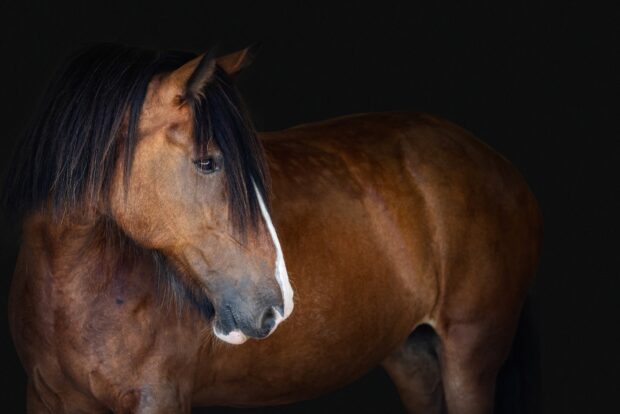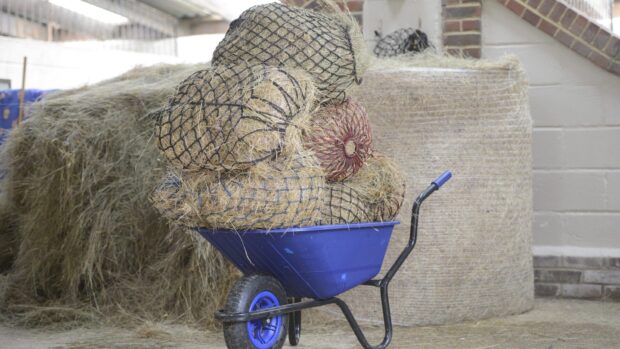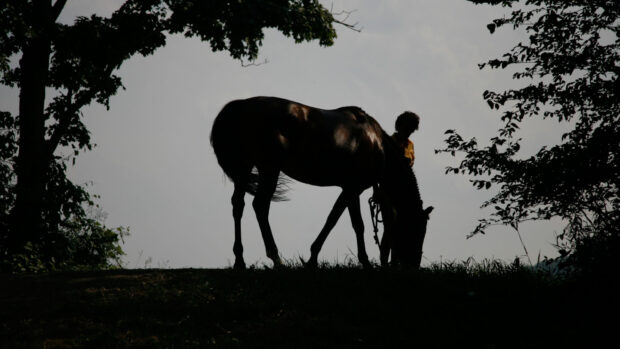Riders must be educated in equine behaviour science, welfare evaluated appropriately and enforceable standards brought in.
These were statements made during a discussion on equine sport-horse welfare, during a cross-party meeting of the Intergroup on the Welfare and Conservation of Animals, in the European Parliament on 8 May.
The meeting was chaired by Intergroup president and Danish MEP Niels Fuglsang, who has been a leading voice pushing for tougher EU oversight of horse welfare. He has called for the extension of directive 98/58/EC – currently limited to farm animals – to cover sport horses and allow sanctions for mistreatment.
In response, the European Commission acknowledged concerns and confirmed it has held discussions with the FEI and other stakeholders. However, it clarified that the directive applies only to farmed animals. Regulation of equine welfare in sport remains with member states, and there are no plans to expand the directive or introduce EU-wide rules.
Fuglsang has also publicly advocated for banning double bridles across the EU and met with FEI president Ingmar de Vos in December, later expressing frustration at slow progress.
This latest meeting aimed to “understand how the welfare of sport horses is assessed and safeguarded, and to explore what improvements might be needed.”
Dr Mette Uldahl, vice president of the Federation of Veterinarians of Europe, gave a presentation alongside Mr de Vos.
“We urgently need to educate modern equestrians in equine behavioural science,” Dr Uldahl said. “But education is not alone sufficient, we need to have firm governance and regulation.
“To move from performative gestures to meaningful reform, horse sport must adopt mandatory, enforceable standards. These should be grounded in three key principles. Horse welfare must be the highest priority; in competition, horses must be assessed based on their objective mental and physical state.”
She stressed that welfare must be measured using clear indicators: “Welfare must be evaluated through objective indicators such as body language, tail movements, ear position, eye and facial expressions, and behaviours like open mouths. Horses showing signs of pain, fear, or discomfort must not be rewarded.”
Dr Uldahl also called for equipment reform and independent oversight. “Harmful or coercive equipment that reasonably risks causing pain, injury, suffering, or fear must be banned, and tools that fix horses into rigid positions or mask body language must not be used,” she said. “Independent advisory boards must be empowered to question practices, raise concerns, and ensure transparency.
“With these principles embedded, it is entirely possible to align horse sport with modern standards of welfare and public expectations.”
Mr de Vos reaffirmed the FEI’s commitment to welfare, citing reforms like the removal of time limits on horse abuse cases and the implementation of recommendations from the independent Equine Ethics and Wellbeing Commission.
FEI veterinary director Dr Göran Åkerström gave an update on the 37-point Equine Welfare Action Plan, which includes the newly introduced noseband measuring device and the launch of the Equine Welfare Advisory Group for external oversight.
During discussion, MEP Tilly Metz (Greens/EFA) asked: “What can the EU do to improve the welfare of the horses?”
Dr Uldahl replied: “Independent advisory boards led to real progress – they help the sport maintain its social licence to operate. It’s not about revolution, it’s about evolution – but we need a mandate to make that happen. A clear step would be requiring independent advisory boards to oversee all types of horse sport.”
Mr de Vos said: “We’re addressing welfare, but we need EU help in two areas: easing transport of equine athletes across borders, and recognising the FEI’s digital passport system for traceability.”
- To stay up to date with all the breaking news from major shows throughout 2025, subscribe to the Horse & Hound website
You may also be interested in:

Why we are seeing blue tongues in dressage arenas – and what needs to be done about it

‘Horse sports will change radically’ as Dutch parliament backs ban on ‘all animal-unfriendly’ tack

The double bridle debate – the facts, the opinions… and the politics

Proposed ban on double bridles and riding behind the vertical debated in European Parliament

Subscribe to Horse & Hound magazine today – and enjoy unlimited website access all year round






